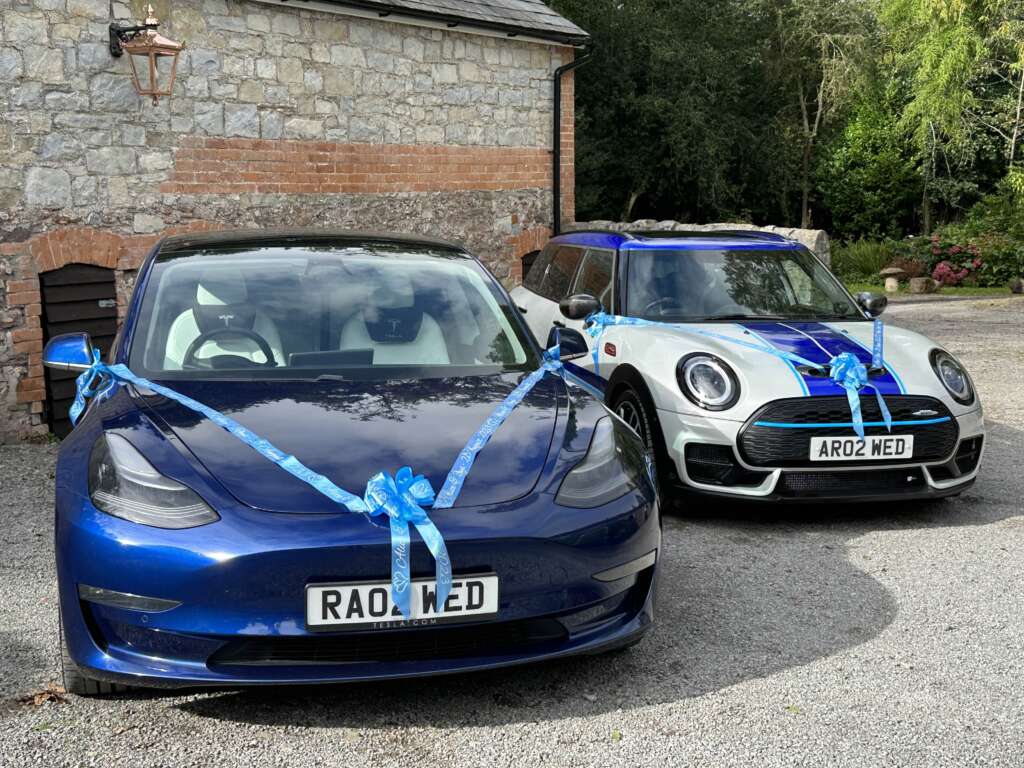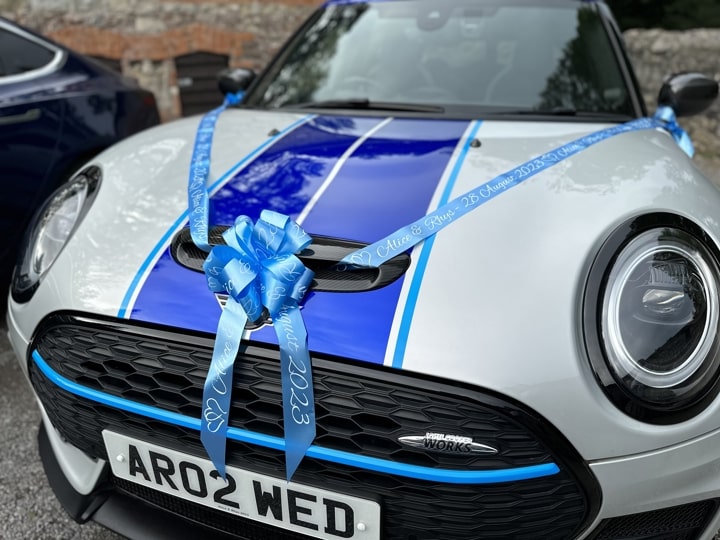Private or personalised number plates have become popular in the UK as a way to make cars more distinctive, celebrate special occasions, or create a connection between car and driver. Some people see them as a fun way to personalise their vehicle, while others view them as investments or gifts. If you’re considering a private registration for the first time or simply curious about the process, here’s a breakdown of everything you need to know — with a bit of my own experience thrown in.
Why Do People Buy Private Number Plates?
There are several reasons people are drawn to private plates:
- Personalisation: A private plate is a way to make your car uniquely yours. Instead of the standard alphanumeric sequence, you could have a plate that reflects your name, initials, or a memorable date.
- Sentiment and Celebration: Many buy plates to mark a special occasion or honour a loved one. For example, I bought “his and hers” plates (RA02WED and AR02WED) for my wedding last year. We didn’t have wedding cars since we stayed at the venue, Pencoed House Estate, the night before, but we made the day memorable with our matching registration plates.

Tesla Model 3 and Mini Clubman – wedding cars - Investment Potential: Some number plates appreciate in value over time, especially rare or highly sought-after combinations. Collectors might purchase plates purely as assets to sell on later.
- Gift Giving: Private plates make wonderful milestone gifts. My very first private plate was a birthday present when I turned 18. Since then, I’ve bought several more — some I’ve used on cars, and others have been kept on retention for later.
How to Buy a Private Number Plate
Buying a private plate is fairly straightforward in the UK. Here’s a step-by-step guide:
- Choose Your Plate: Start with an idea of what you want. Whether it’s your initials, a favourite number, or a clever phrase, having an idea in mind helps narrow down the search.
- Where to Buy: The most reliable place to buy is through the official DVLA website, where plates are frequently auctioned or available to buy directly. Other reputable online marketplaces or brokers can help if you’re looking for something specific or rare. Ensure the marketplace you’re using is trustworthy to avoid hidden fees or inflated prices.
- Check Availability and Pricing: Once you find a plate you like, check the price and availability. Prices can vary wildly depending on demand and rarity. The DVLA often lists plates from as low as £250, but rarer combinations can reach thousands.
- Make the Purchase: After selecting the plate, you can purchase it either outright or sometimes by bidding in an auction. Many online brokers and marketplaces also offer instalment payment plans if you prefer to spread the cost.
- Documentation: Upon purchase, you’ll receive a V750 (certificate of entitlement) if the plate is new, or a V778 (retention document) if transferring from another vehicle. Keep this document safe — you’ll need it to assign the plate to a vehicle.
How to Register Your Private Plate
Registering your private plate is just as important as buying it. Here’s how it works:
- Assigning the Plate: When you’re ready to use your private plate, you can assign it to a car through the DVLA’s online service or by post. You’ll need your V5C (logbook) for the vehicle you’re assigning it to, along with either the V750 or V778.
- Tax and MOT: Once the plate is registered to your vehicle, you’ll receive an updated V5C reflecting the new registration. Make sure your car’s MOT and tax records are updated with the new plate number. This usually happens automatically, but it’s always wise to double-check.
- Physical Plates: You’ll need to buy physical plates with your new registration from an authorised plate supplier. Ensure they’re road legal, displaying the correct font, spacing, and British Standard number.
- Insurance Update: Finally, don’t forget to update your insurance provider with the new registration to keep your coverage valid.
Holding Plates on Retention
If you’re not ready to assign the plate to a vehicle, you can keep it on retention with a V778 document. This is useful if you want to secure a plate but don’t have a car for it just yet, or if, like me, you’ve collected plates over the years and might decide to use them in the future. You can renew your V778 annually, and you’ll need it when the time comes to assign the plate.
My Experience with Private Plates
Private plates have been a part of my car journey since my 18th birthday when I received my first one as a gift. Over the years, I’ve bought several, some for specific cars and others simply because I liked the combinations. The “his and hers” wedding plates are some of my favourites because they hold sentimental value from a special day. While not every plate makes it onto a car straight away, having a few on retention has meant I always have options for new cars or occasions.
Final Thoughts
Whether you’re looking for a one-of-a-kind number plate for your next car or hoping to celebrate a milestone, private plates offer an enjoyable and personal way to enhance your vehicle. Buying and registering them in the UK is a straightforward process with a bit of planning. With options to personalise, invest, or even gift, the right plate can make your car feel just that bit more special.

